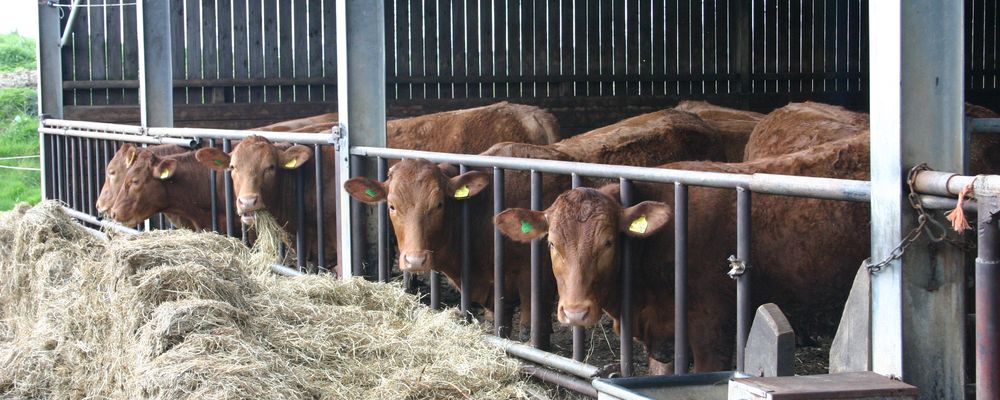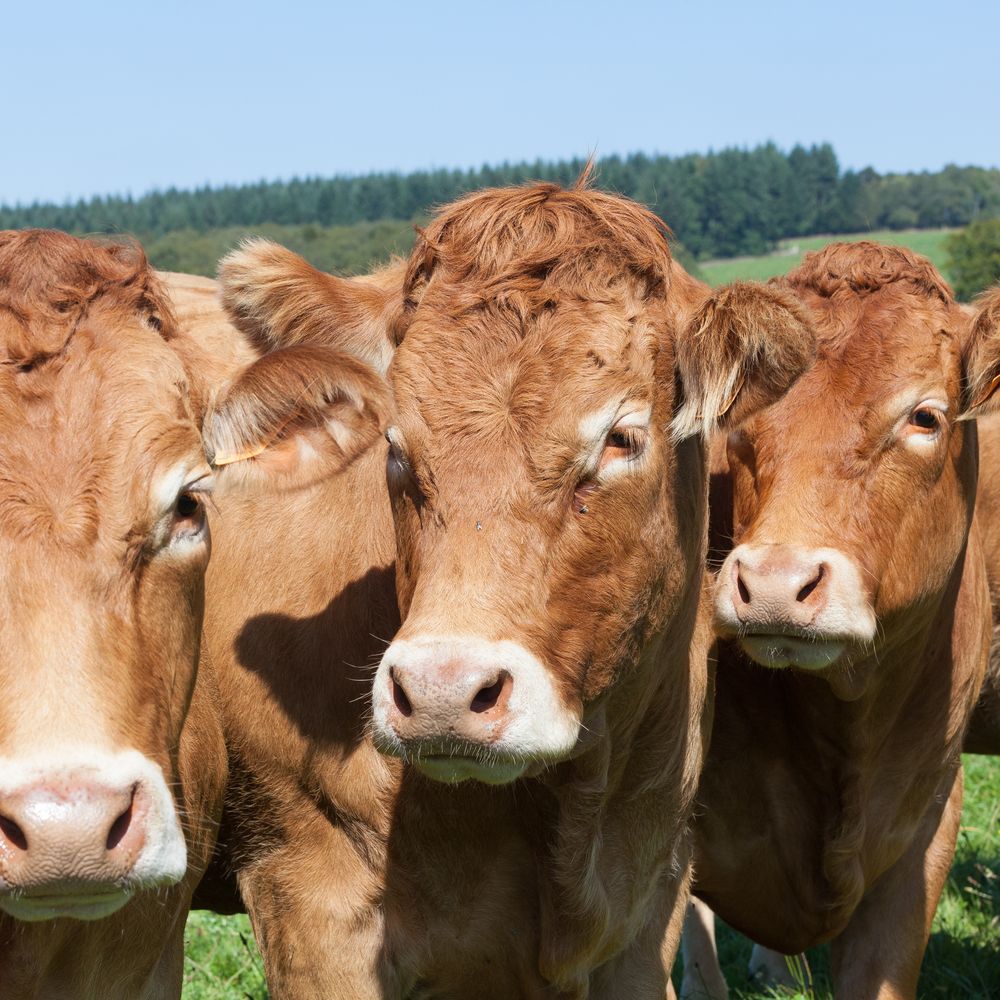To celebrate its 50th anniversary, the Limousin Society ran a commercial herd competition for the first time and the winners were the Mather family from Besshill Farm near Barnstaple.
Edward and Hazel Mather run the farm with Edward’s father Ray. And their daughters Selina, Ruby and Emily are getting increasingly involved with the stock. The all grass farm is home to a 104 cow herd of polled Limousin with all progeny finished on farm, with many of them sold through their farm shop.
The shop was set up 20 years ago as a way to add value to cattle during the Foot and Mouth outbreak and has remained a major part of the business, developing a fully justified excellent reputation. The rearing system is geared to providing the required flow of finished cattle for the shop with the balance, mainly steers, sold to ABP.
Around 85 cows will calve in the spring with the balance in the autumn. Bulls are turned in for 8-9 weeks to ensure a tight block and usually 15 home reared heifers will calve down each year.
Spring born calves will spend the summer on their mothers and are fed a Harpers beef blend from around August, being weaned in November when they are consuming 4-5kg/day. They are housed on big bale grass silage and blend. Steers will receive 5kg/day of blend while heifers are fed 3kg.
Any steers weighing 550kg are kept indoors in the spring, finishing on barley while lighter animals will finish at grass. Any heifers not retained for breeding will be sold through the shop with a target 360-370kg deadweight. Spring born steers are sold to ABP, targeting 680kg liveweight (390-400kg deadweight).
Autumn born calves receive the same blend from six weeks old and stay on the dam until early April. They will stay out at grass as long as possible before being housed on big bale silage and barley until finishing. All are sold through the shop.
The Mathers calve all cows themselves and ensure each calve receives 500ml of colostrum from their dam via a tube immediately after calving. Although it increases workloads, they believe this helps gets calves on their feet and suckling and ensure a good supply of strong calves.
Achieving net zero is a major focus for the family who are conscious that they are supplying the end consumer who is interested in the provenance of the meat. Ten years ago they installed solar panels and the latest development is a water wheel which is hoped will supply the electricity needs of the house and farm. They have planted 3000 trees and re-established hedgerows.
In a move to reduce their carbon footprint further, they are currently trialling Harpers Planet beef diets which contain zero soya and hope that they can remove soya without affecting performance.
The award is fantastic recognition of a farming family determined to deliver high-quality and sustainable beef, through great attention to detail and an efficient system.
For more information on our range of beef and growing feeds, contact your local Feed Specialist







